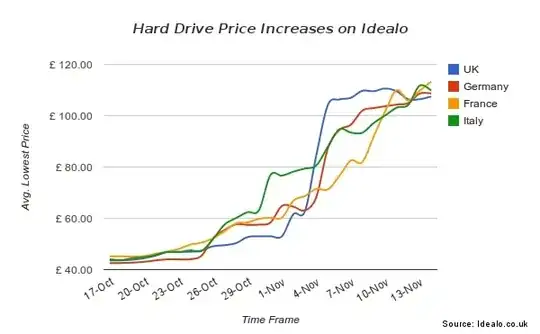Beyond any doubt Thailand floods have affected HDD market. However, some analysts say that the effect on the market should be a 10-30% price increase. Meanwhile in the consumer market the increase is 150-300%.

source: Idealo
There are claims that this is in fact caused more by big distributors creating false shortage by excessive stockpiling, rather than only the effect of the floods.
Example of such claim:
According to Sander van Veen, storage product manager at Samsung, this increased production cost of Samsung HDDs by 7 to 8 percent. Samsung could not pass that up, because there were already agreements with distributors.
Despite this, the retail prices of Samsung HDDs, as well as those of other manufacturers such as Seagate and Western Digital, increased enormously.
Is there evidence to prove or deny that claim?
Update: yet another claim, few months later. "HDD Crisis Was Fake: Seagate and Western Digital Post Big Profits"